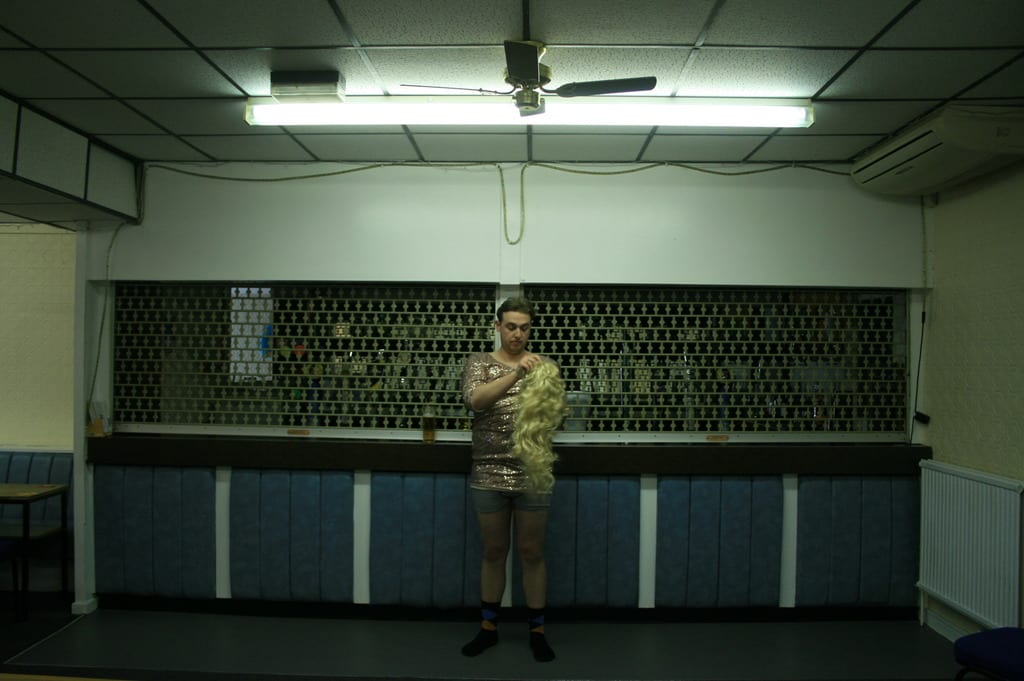This is a short, sweet, sensitive one man play depicting a bit of a lost, lonely period for Darryl, a recently unemployed South Wales steel worker.
The stage set – a table strewn with crushed beer cans, with a cheap glitzy dress crumpled over one of the surrounding chairs – remains the backdrop for the play’s 40 minutes (and Darryl’s relating of the various epiphanies and traumas he’s undergone), and gives the impression of long, solitary, repeated, beer-fuelled sessions of self-analysis and frustration, night blurring into dawn. Darryl addresses us, but you get the impression that he’s also talking to himself, trying to get some sort of hold and control over what’s happening to him, searching for some meaning and a way out (he also speaks into a recorder, taping his thoughts – the reason why, we learn later).
Jake Cornford is great as Darryl – a bit laddish, ‘cocky’ as he describes himself, but with a wounded, troubled, vulnerable interior bubbling up quickly to the surface. And though he seems a bit of a loner to begin with, isolated and cast aside by his workplace, with no real close family or friends mentioned (his only regular contact being the old woman living upstairs), he still manages to get a date with the receptionist, Jacqui, at one of his job interview postings, even though he’d woken up hungover and late at 3pm that day. Indeed, with his stubbled cheeks, sweaty overgrown hair and pale, doughy skin (which hasn’t seen sunlight for a while), and his romantic loser braggadocio, he reminded me of one of Bukowski’s autobiographical, boarding house dwelling, cheesed off factotums, ready with the wit and comeback regardless of the circumstances chucked at them.
However, Darryl nurtures other, non-macho secrets: Dolly Parton’s voice and songs (including a male version of ‘Jolene’) punctuate the play’s action, her performance at Caesars Palace being his vision of ideal beauty and grace, something transcendent, a flash of the poetic in the everyday. And his quest to attain some level of peace amidst his difficulties leads him to experiment with furtively wearing one of Jacqui’s dresses (she being his girlfriend now), this later turning into a regular secret, solo habit.
What ensues is dealt with very touchingly: we see Darryl struggling with his desires and how to express himself and his discovery. There is a sense of him not being able to contain this burgeoning inner life, while the late night boozing and self-reflection continues, the audience hearing every confession. The world outside his window, and outside of the theatre, is at odds with the calm here in his private sanctum – and he hangs in limbo, in between (‘I’m not there yet…’ is a repeated refrain, with numerous implications from the story we hear).
This separation and division leads to my only real criticism of the play: we get a little too much of just Darryl, life through his camera lens, and it would have been interesting to hear another character speaking to us directly, unfiltered, from outside of his surroundings. But perhaps that sense of being trapped, claustrophobically, in his mind (and body) is one of the main points of the play.

